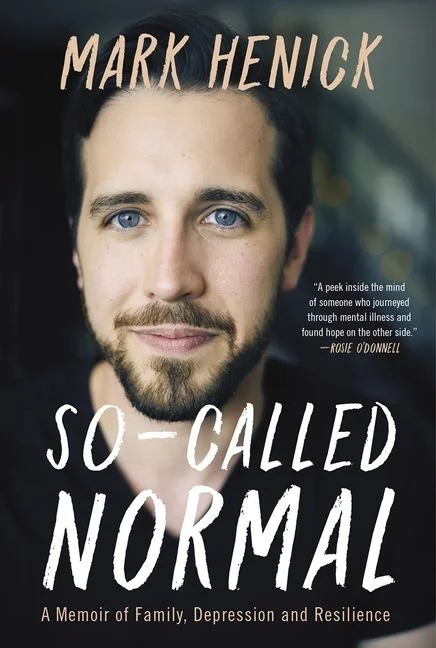#48 - The Space Between: Mark Henick on Rewriting the Mental Health Script
Today’s guest is Mark Henick
People get stuck in reactive loops—shame, fear, and rigid stories—when stress hits. Mark shows how to expand the gap between stimulus and response, transforming stigma and “awareness only” into practical skills that sustain mental health at work and at home.
In today’s conversation Mark Henick explores why resilience isn’t “never falling” but learning to fail well—and how that mindset carried him from adolescent depression and suicidality to rebuilding a purpose-driven life. He and Dr. Wells unpack radical acceptance, the discipline of creating space before you respond, and the role of contact-based education in reducing stigma. Mark shares concrete practices that helped him navigate job loss, grief, and parenting under pressure. The result is an honest playbook for mental fitness that’s equal parts compassion and execution.
You will learn how to spot default reactions and train a deliberate pause that leads to better choices. You will learn why pain and suffering aren’t the same thing, and how acceptance reduces friction. You will learn simple reps—journaling, emotion-labeling, perspective shifts—that turn adversity into agency. You will also learn how to “balance the equation”: process difficult emotions and intentionally amplify joy to rewire memory and mood.
You will discover that resilience is repeatable: consistent micro-practices expand your response-ability, even in chaos. You will discover how curiosity (“what now?”) reframes setbacks into skill-building moments.
Feeling hijacked by worry loops or old narratives. Mark offers tools to notice the story, accept the moment, and choose the next useful action—especially when life doesn’t go to plan.
Key take aways:
Resilience = learn to fail well, repeatedly.
Create space: response beats reaction.
Acceptance reduces suffering; resistance fuels it.
Train joy; encode positive moments.
Ask “What now?” then act.
“Pain and suffering don’t have to go together—they’re not the same thing.”
Today’s Expert Guest - Mark Henick
Mark Henick is a bestselling author, keynote speaker, and mental-health strategist whose viral TEDx talk “Why We Choose Suicide” has been viewed millions of times. He is the principal and CEO of Strategic Mental Health Solutions, previously served on the board of the Mental Health Commission of Canada, and was a president within the Canadian Mental Health Association. He holds an MSc in Child Development plus training in trauma counseling, suicide intervention, and mental health first aid.
Mark unites lived experience, clinical literacy, and media-savvy storytelling to move organizations from awareness to measurable action. His work blends stigma-reducing contact, simple cognitive and acceptance practices, and leadership behaviors that make psychological safety tangible across teams.
Run the “What Now?” Pause all week: when a trigger hits, (1) name the feeling once, (2) take three slow breaths, (3) choose one tiny next step that aligns with your values. Repeat daily to convert reactivity into resilience.
Follow Mark Henick on Instagram & Linked In.
Check out his website.
So-Called Normal:
A Memoir of Family, Depression and Resilience
A near-death experience changed Henick’s life forever. So-Called Normal is Henick’s memoir about growing up in a broken home and the events that led to that fateful night on the bridge. It is a vivid and personal account of the mental health challenges he experienced in childhood and his subsequent journey toward healing and recovery.
This podcast contains advice and information relating to health and wellness. It should be used to supplement rather than replace the advice of your doctor or another trained health professional. If you know or suspect that you have a health problem, seek your physician’s advice before embarking on any medical program or treatment. All efforts have been made to assure the accuracy of the information contained in this podcast / interview / article as of the date of publication. The author and publisher disclaim liability for any medical or other outcomes that may occur as a result of applying the methods suggested in this material.




